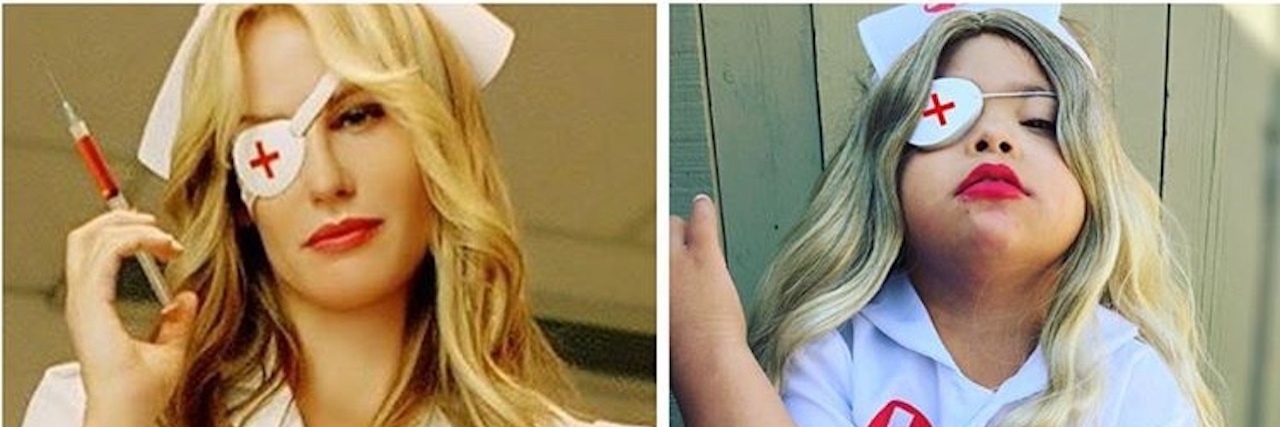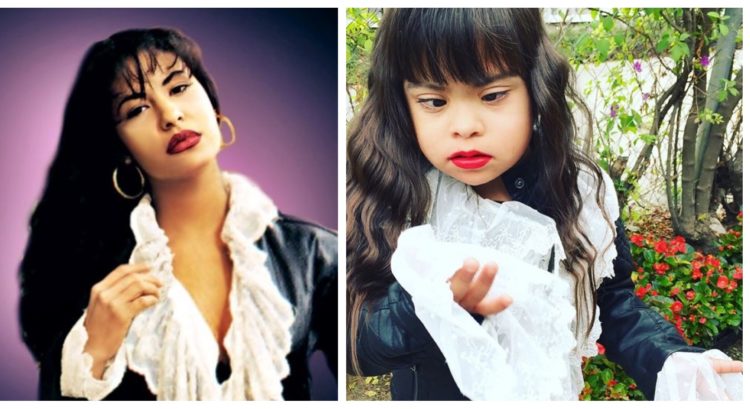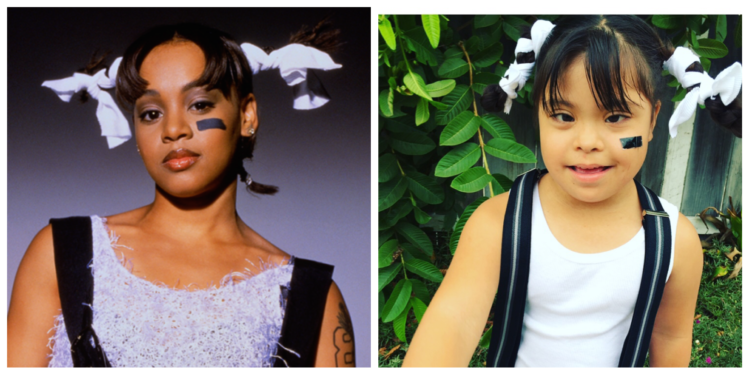Wigs, lipstick, poses and pictures!
Cosplay is defined as, “The practice of dressing up as a character from a work of fiction (such as a comic book, video game or television show).” Cosplay time is such a treat for my daughter, Ava, because she adores the camera. Cosplay time allows Ava to explore outside of herself and be bolder than usual. She’s only 6 years old, but she has already been an assassin, Left Eye of TLC, and the iconic Selena Quintanilla. While Ava’s cosplays are far from perfect, they are fun. They also serve a purpose — we strive to use cosplay to dispel the myth that all children with Down syndrome look alike.
Myths, misconceptions and outdated information are the worst enemies of parents who have just gotten a diagnosis of Down syndrome for their child. This information is often offensive, limiting and perpetuates stereotypes. The misconception that all children with Down syndrome look alike actually removes the identity of a child. It removes their identity and forces them to become a set of physical characteristics that may, or may not, apply to them. The wording of the “common characteristics” of Down syndrome that you will find online is actually quite unflattering, “Upward slanting eyes, flat face, thick neck, large tongue, short in stature, flaccid muscles . . .”
This is an extremely poor way of describing children with Down syndrome. When Ava was first diagnosed, I believed the myth and I mourned for a child who I thought would only be seen as this terribly-written set of characteristics.
Through Ava’s cosplays and inspired looks, we are showing that people with Down syndrome can be versatile in their looks and have their own personality. Each photo we take showcases a little girl playfully, and comfortably, trying on different identities.
I am content knowing Ava is not simply being viewed as a set of negative characteristics. Her future holds bigger and more elaborate cosplays — which means more makeup and props –a dream come true for a bold, unique and photogenic 6-year-old who happens to have Down syndrome.



